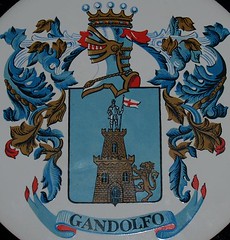RE: Abraham & Brahma
----------------- Bulletin Message -----------------
From: Subversionary
Date: Jun 5, 2007 4:25 PM
----------------- Bulletin Message -----------------
Thanks my brother The Deconstruction Process
Date: Jun 5, 2007 3:20 PM
very interesting
Thank you: _.~*SVAHA*~._
Date: Jun 5, 2007 3:07 PM



"There are certain striking similarities between the Hindu god Brahma and his consort Saraisvati, and the Jewish Abraham and Sarai, that are more than mere coincidences. Although in all of India there is only one temple dedicated to Brahma, this cult is the third largest Hindu sect."
"The Arabian historians contend that Brahma and Abraham, their ancestor, are the same person. The Persians generally called Abraham Ibrahim Zeradust. Cyrus considered the religion of the Jews the same as his own. The Hindoos must have come from Abraham, or the Israelites from Brahma…" (Anacalypsis; Vol. I, p. 396.)
Ram and Abraham were possibly the same person or clan. For example, the syllable "Ab" or "Ap" means "father" in Kashmiri. The prototypical Jews could have called Ram "Ab-Ram" or "Father Ram." It's also conceivable that the word "Brahm" evolved from "Ab-Ram" and not vice-versa. The Kashmiri word for "Divine Mercy," Raham, likewise derives from Ram. Ab-Raham = "Father of Divine Mercy." Rakham = "Divine Mercy" in Hebrew; Ram is also the Hebrew term for "highly placed leader or governor." Indian historian A. D. Pusalker, whose essay "Traditional History From the Earliest Times" appeared in The Vedic Age, said that Ram was alive in 1950 BC, which is about the time that Abraham, the Indo-Hebrews, and the Aryans made the greatest India-to-the-Middle East migration since the Great Flood.
The individual is not constitutionally separate from the substance of the whole, and the whole is not in any way different from the structure of the part. They are essentially the same. That which connects the part with the whole and the whole with the part is what is called Purusha. The Being that is between the two as a need, as it were, is the immortal essence of the cosmos as well as the individual - sa yo'ayam atma. This is the Atman that we speak of. This is the Self of the Universal Being; this is the Self of the individual being; this is the Self of what is outside; this is the Self of what is inside. This is all idam sarvam. This is called Brahman, the Absolute. It is filling all space, existing everywhere, filling all things. It is a plenum; it is fullness; and therefore it, is called Brahma. The word Brahma comes from the root brahm, to fill everything, complete everything, and to be self-sufficient in every respect. That which is overwhelming and complete in itself is Brahma, and that is the Atman or the Self of all beings - idam brahma, idam sarvam.~Swami Krishnananda
two resources for further study...
Who was Abraham?
Who was Abraham?
From: Subversionary
Date: Jun 5, 2007 4:25 PM
----------------- Bulletin Message -----------------
Thanks my brother The Deconstruction Process
Date: Jun 5, 2007 3:20 PM
very interesting
Thank you: _.~*SVAHA*~._
Date: Jun 5, 2007 3:07 PM



"There are certain striking similarities between the Hindu god Brahma and his consort Saraisvati, and the Jewish Abraham and Sarai, that are more than mere coincidences. Although in all of India there is only one temple dedicated to Brahma, this cult is the third largest Hindu sect."
"The Arabian historians contend that Brahma and Abraham, their ancestor, are the same person. The Persians generally called Abraham Ibrahim Zeradust. Cyrus considered the religion of the Jews the same as his own. The Hindoos must have come from Abraham, or the Israelites from Brahma…" (Anacalypsis; Vol. I, p. 396.)
Ram and Abraham were possibly the same person or clan. For example, the syllable "Ab" or "Ap" means "father" in Kashmiri. The prototypical Jews could have called Ram "Ab-Ram" or "Father Ram." It's also conceivable that the word "Brahm" evolved from "Ab-Ram" and not vice-versa. The Kashmiri word for "Divine Mercy," Raham, likewise derives from Ram. Ab-Raham = "Father of Divine Mercy." Rakham = "Divine Mercy" in Hebrew; Ram is also the Hebrew term for "highly placed leader or governor." Indian historian A. D. Pusalker, whose essay "Traditional History From the Earliest Times" appeared in The Vedic Age, said that Ram was alive in 1950 BC, which is about the time that Abraham, the Indo-Hebrews, and the Aryans made the greatest India-to-the-Middle East migration since the Great Flood.
The individual is not constitutionally separate from the substance of the whole, and the whole is not in any way different from the structure of the part. They are essentially the same. That which connects the part with the whole and the whole with the part is what is called Purusha. The Being that is between the two as a need, as it were, is the immortal essence of the cosmos as well as the individual - sa yo'ayam atma. This is the Atman that we speak of. This is the Self of the Universal Being; this is the Self of the individual being; this is the Self of what is outside; this is the Self of what is inside. This is all idam sarvam. This is called Brahman, the Absolute. It is filling all space, existing everywhere, filling all things. It is a plenum; it is fullness; and therefore it, is called Brahma. The word Brahma comes from the root brahm, to fill everything, complete everything, and to be self-sufficient in every respect. That which is overwhelming and complete in itself is Brahma, and that is the Atman or the Self of all beings - idam brahma, idam sarvam.~Swami Krishnananda
two resources for further study...
Who was Abraham?
Who was Abraham?
Labels: Abraham, Brahma, gandolfo, The Truth Is Out There



0 Comments:
Post a Comment
<< Home